Presenters
France and its languages: towards a shift in paradigm
Thierry Delobel
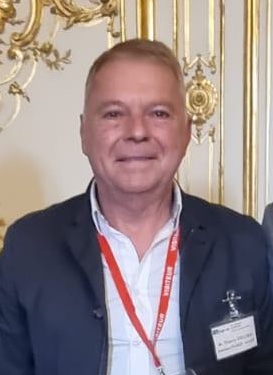
After a brief reminder of the linguistic wealth of France, with its dozen or so metropolitan languages and approximately sixty languages from the overseas territories and departments, we will focus initially on two of these territories: Réunion and French Guiana.
We will discuss how, in 2021, the regulatory and legal framework for regional languages was overturned after decades of deadlock thanks to the passing of the 'Molac' law.
"As many languages as there are different situations". This is also what we will be able to see in mainland France with the focus on the teaching situation in the Basque country, where heritage, educational, societal and even environmental issues are driving the schools forward that are untying languages.
Implementation of The Romani-Plurilingual Policy Experimentation
Ágnes Antal Nyustin Szabina Szabó Balázs


The presentation aims to introduce the experience and observations of the Romani-Plurilingual Experimentation in the context of the primary school in Vyškovce nad Ip?om, Slovakia. It points out the opportunities of intercultural education through concrete examples. It also explains the positive effect of artistic subjects and sport on inclusion and how it can be understood in a multicultural and plurilingual environment of classes with a small number of pupils. Ultimately, it summarises the ways how the positive experiences can be transferred to the integration of the Roma community.
Promotion of Romansh outside the language area
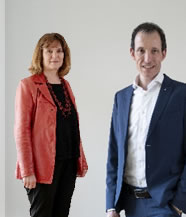 Annalisa Schaniel and Andreas Gabriel
Annalisa Schaniel and Andreas Gabriel
Rhaeto-Romanic is one of the four national languages of Switzerland and is spoken by 60,000 people. In its original language area, Rhaeto-Romanic is the official language and the language of instruction. Two-thirds of Rhaeto-Romans live outside the traditional language area. What is needed to preserve the language there as well? Is it enough for local groups to offer meeting and educational opportunities for children and for young people to learn Romansh in online lessons? Will raising the awareness of the majority of speakers of other languages in the country create greater understanding for the concerns of an endangered small language?
Policy and innovative practice in teaching walloon language
Romain Berger Julien Noel
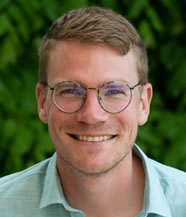
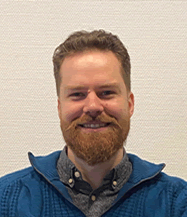
This presentation aims to showcase a real-world case study, that of the Haute École de la Ville de Liège, which integrates Wallon pedagogy courses into the initial training of preschool, primary, and secondary school teachers (middle school level). Following an explanation of the institutional framework within which these courses operate, the focus will shift to the tools created and utilized by the students within the institution as well as in their professional practice.
Curricula, examinations and assessment for RML in Norway – challenges and solutions
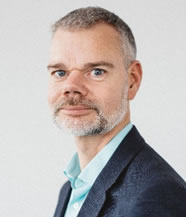 Kim Buxton
Kim Buxton
In Norway the indigenous languages Norwegian and Sámi have official status and are protected by the Constitution.
In addition, Norway recognises three minority languages. How does Norway promote and preserve its regional and minority languages in the education sector? What opportunities do pupils have to study and gain a qualification in one or more of these languages?
Presentation of the ECML publications and how they can be used
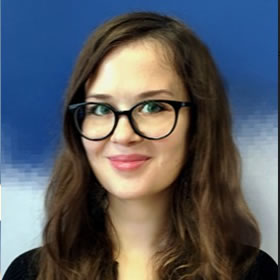 Gabija Kiaušaitè
Gabija Kiaušaitè
Within the framework of its activities for the European Day of Languages, the ECML has developed a wide range of plurilingual resources directly targeting schools. In the most recent of these, Lara, the 'protagonist', explores Europe's regional and minority languages. Showcasing 32 languages, this online brochure is intended to highlight the rich linguistic and cultural diversity present in Europe.
During this presentation I will demonstrate how the brochure, its predecessor "Lara's language journey" and many other of the Centre's resources can be used to raise awareness of and promote the value of all the languages existing side by side in today's Europe.
Innovative teaching practices to foster student motivation in the Basque and Friulian contexts
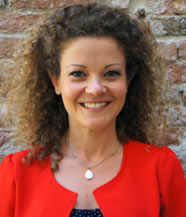 Ada Bier
Ada Bier
This talk focuses on teachers’ perspectives on how to motivate students to learn in multilingual classrooms.
Data from comparative research conducted in the Basque Autonomous Community (Spain) and Friuli Venezia Giulia (Italy) will be presented. The former context is internationally recognised as a successful case of minority language revitalisation within a multilingual educational system. The second context, albeit less well-known in international educational research, is also interesting for its linguistic diversity.
With this presentation, we hope to contribute to the discussion on effective teaching in multilingual contexts, where a local minority language coexists with the State language, a lingua franca and other languages.
Minority Education Regulation in Slovenia with Best Practices from the Bilingual Area of Prekmurje
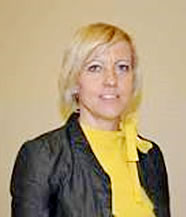 Darja Faric Klemencic
Darja Faric Klemencic
This contribution outlines an overview of how the minority education in Slovenia is regulated through the Act on the Special Rights of the Italian and Hungarian National Communities in the Field of Education and provides some examples of best practices illustrating bilingual education, teaching Slovene and Hungarian as languages of instruction.
The presentation highlights the adapted curriculum for bilingual schools and kindergartens in national mixed areas of Prekmurje (Northeastern part of Slovenia) and the implementation of the guidelines for bilingual education in the above mentioned area by describing the targeted parallel method, formation of language learning groups and inclusion of elective subjects with ethnic content.